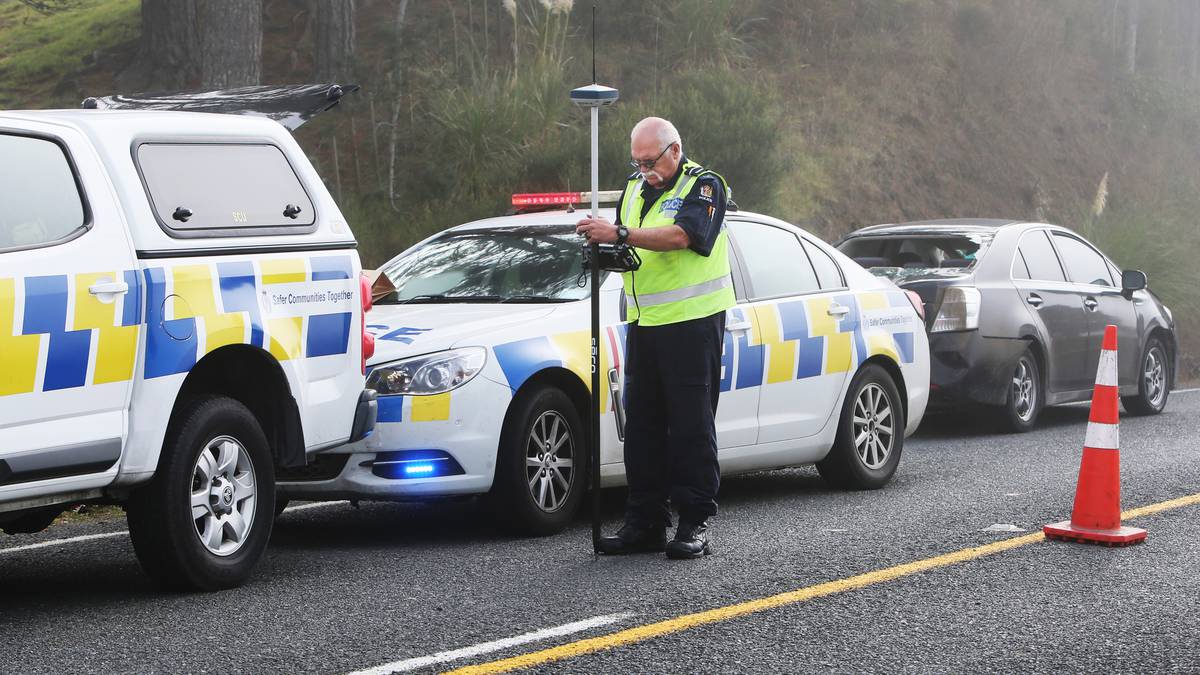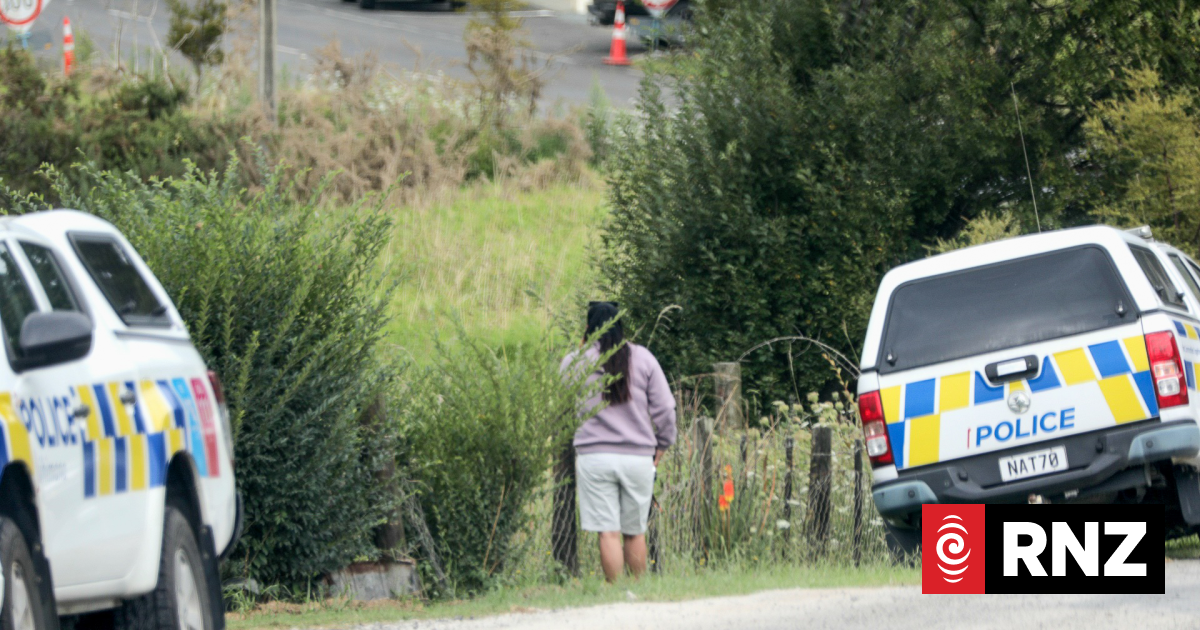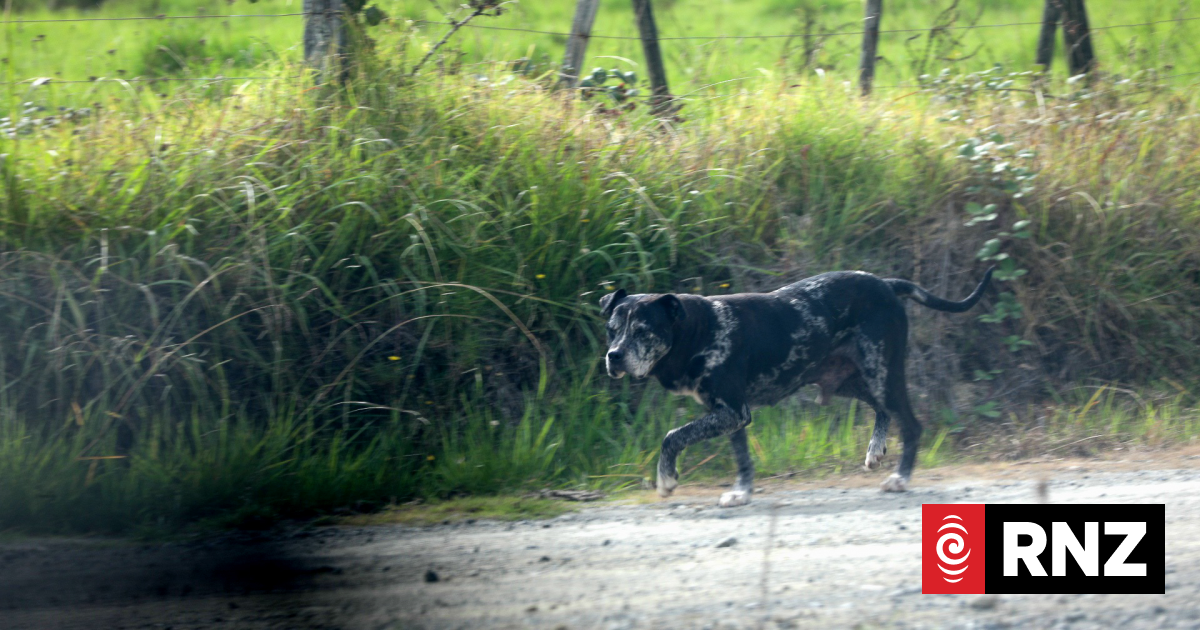Police investigating a fatal crash in Tangiteroria in March this year. Photo / Tania Whyte
Northland is performing poorly on its Road to Zero targets, a new report reveals, but police and Waka Kotahi say they are working on it.
The latest Road to Zero monitoring report named Northland as
one of three regions underperforming in cutting the number of deaths and serious injuries on the roads.
The overall target of the national strategy is to cut deaths and serious injuries by 40 per cent by 2030, but on Northland roads the number increased by 14 per cent from 2020 to 2021.
Deaths and serious injuries fell by five per cent between 2018 and 2021.
Northland Road Safety trust chairman John Williamson said he had a number of criticisms of the Road to Zero strategy.
“No one particularly owns it. It’s something that has just been foisted on us, and if they’re serious about it they really need to make sure everybody involved in roading and road safety, advocates, trucking companies, everybody, is on board with it.”
There was a lot of work on road safety going on in the region, Williamson said, particularly in relation to education and helping people obtain driver’s licences.
There was nothing unusual in the current number of deaths and serious injuries at the moment, he added, at a time when the roads have never been worse.
“The quality of our roads has never been this bad. That’s because we’ve got lousy building materials and [had] very, very bad weather in the last couple of months.”
The state of the roads was particularly bad for motorcyclists, who were over-represented in the statistics, Williamson said.
“We don’t have roads that you could really be riding motorcycles on… our roads are still a bit marginal in that respect.”
People not wearing seatbelts and the use of alcohol and drugs were the major factors in the deaths and serious injuries on the roads, he added.
/cloudfront-ap-southeast-2.images.arcpublishing.com/nzme/KWPGM5LGGWTOTTC6BXHYCDDMWQ.jpg)
A Waka Kotahi spokesperson said the number of deaths and serious injuries on Northland’s roads was concerning.
“The number of deaths and serious injuries can vary significantly from one region to the next, and from year to year, due to the large number of variables in the contributing factors to crashes.
“The rate of deaths and serious injuries from road crashes in Northland is very concerning, and as part of our ongoing monitoring of Road to Zero, Waka Kotahi is undertaking further work to analyse the contributing factors to regional crash trends and variations.”
The report noted that an increase in deaths and serious injuries were more pronounced in Northland and Auckland, which had been more affected by Covid-19 disruptions than most areas.
Police Assistant Commissioner Bruce O’Brien said there were areas of police performance that needed to be improved, and police were committed to doing so.
“Some external factors, like the pandemic, have challenged this progress.
“The increased demand for police support for Covid-19 and other prioritisation decisions has meant our people have had to deal with real-time events, which presents a significant obstacle for road policing prevention deployment.
“But for us to achieve Road to Zero, it takes an all-of-the-system approach, and needs the driving public to also play their part.”
Gisborne and Manawatū-Whanganui were also named as underperforming regions in the report.
The best-performing region, Nelson, had a 62 per cent decrease in deaths and serious injuries since 2018.
The report said the strategy was on track, nationwide, to meet the target of a 40 per cent reduction in deaths and serious injuries by 2030.



